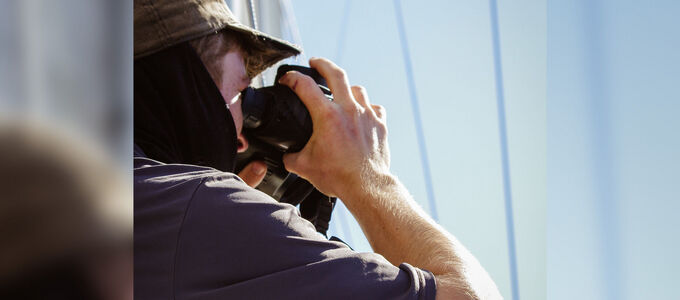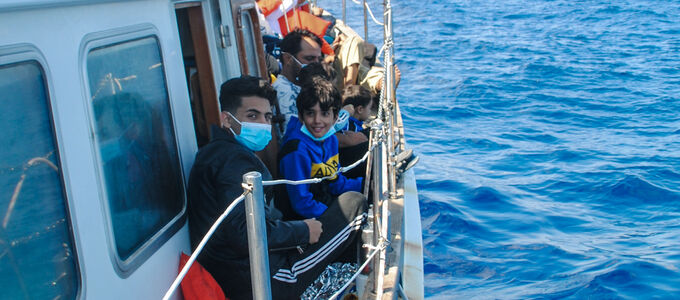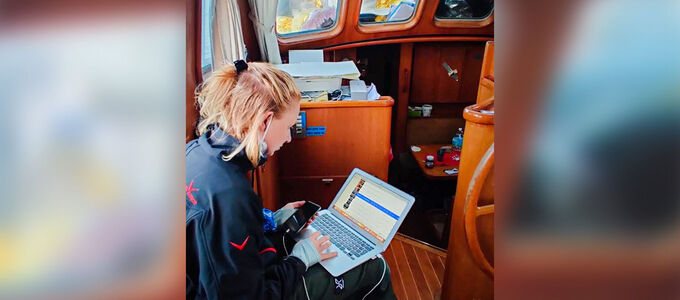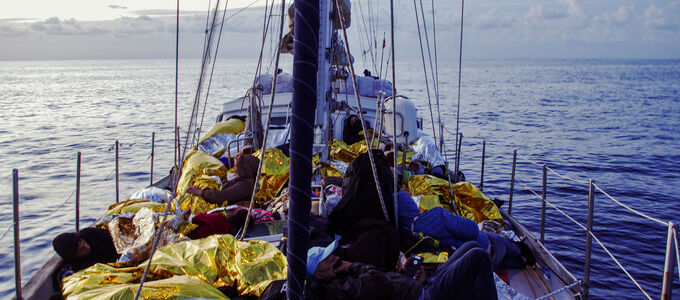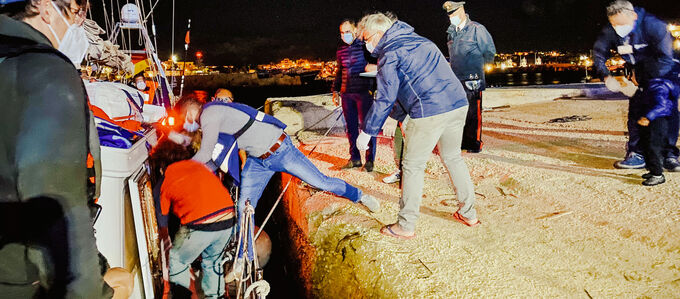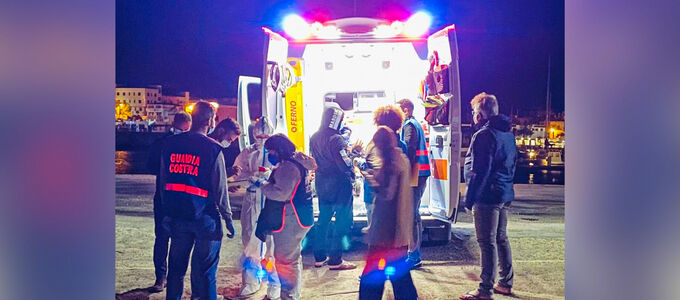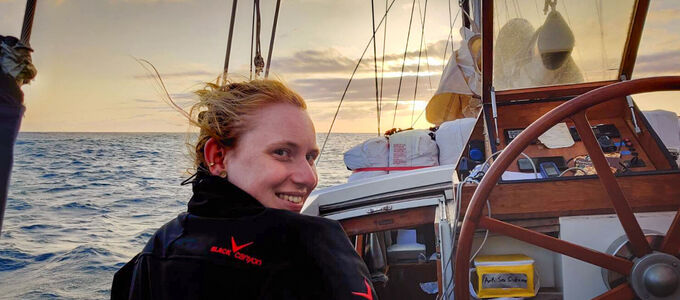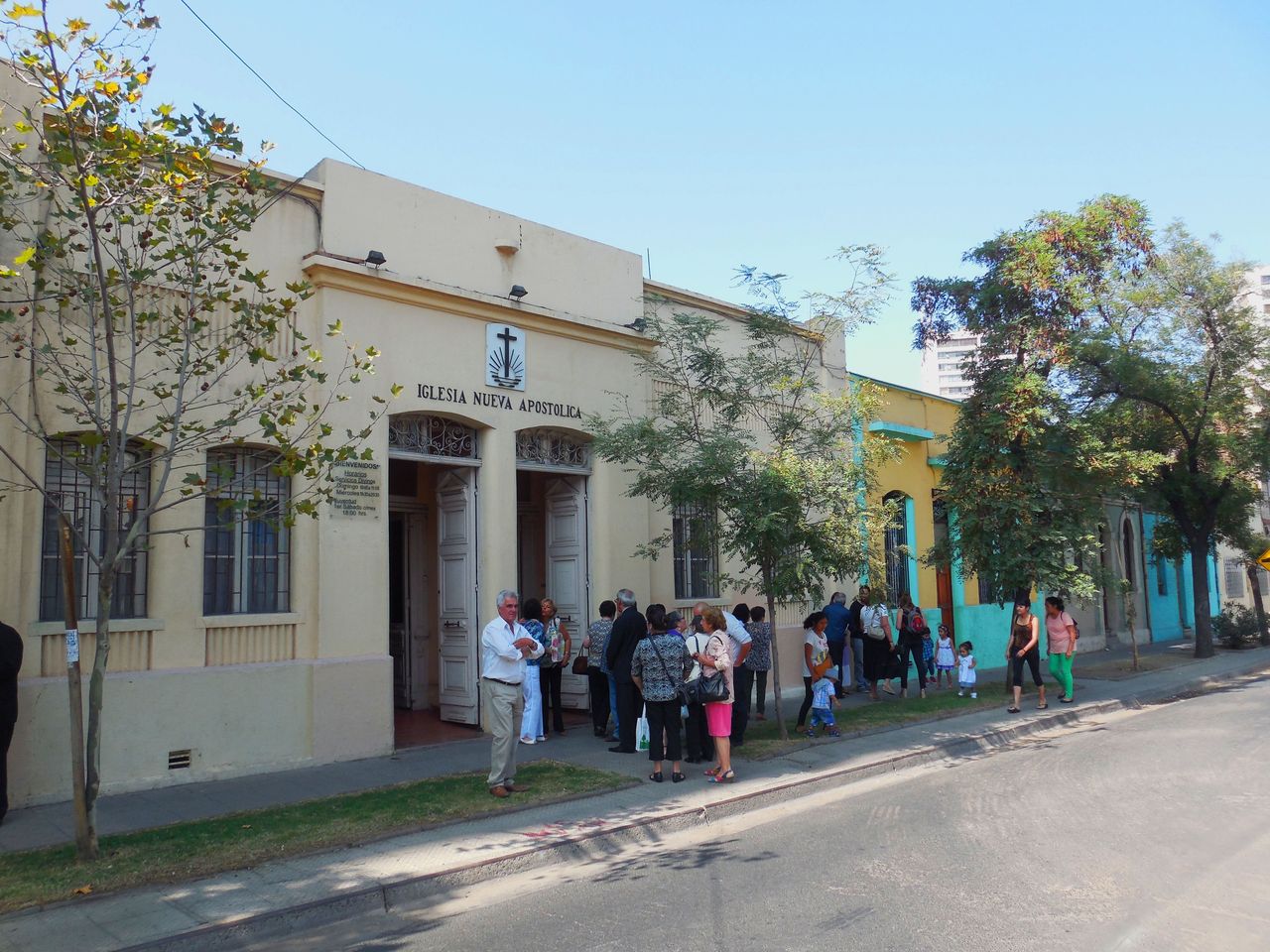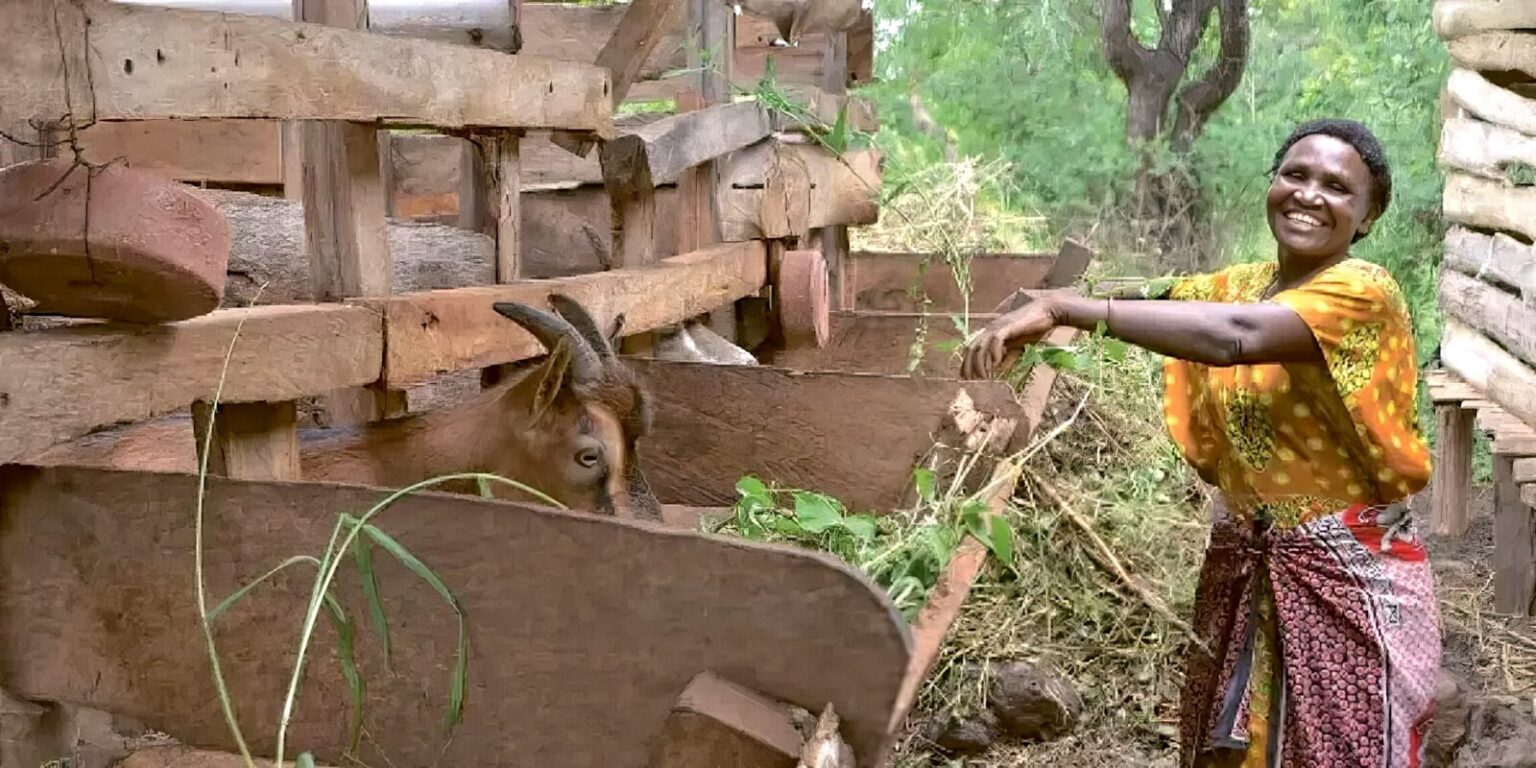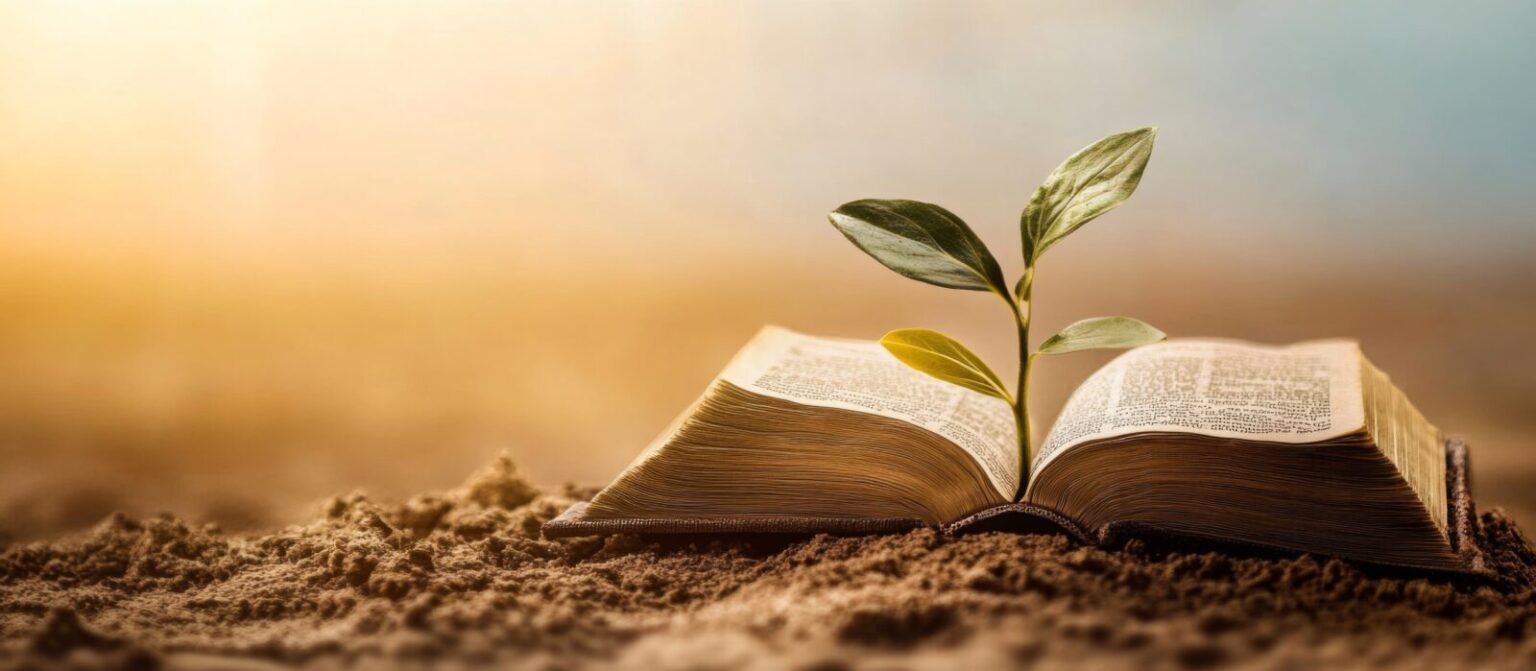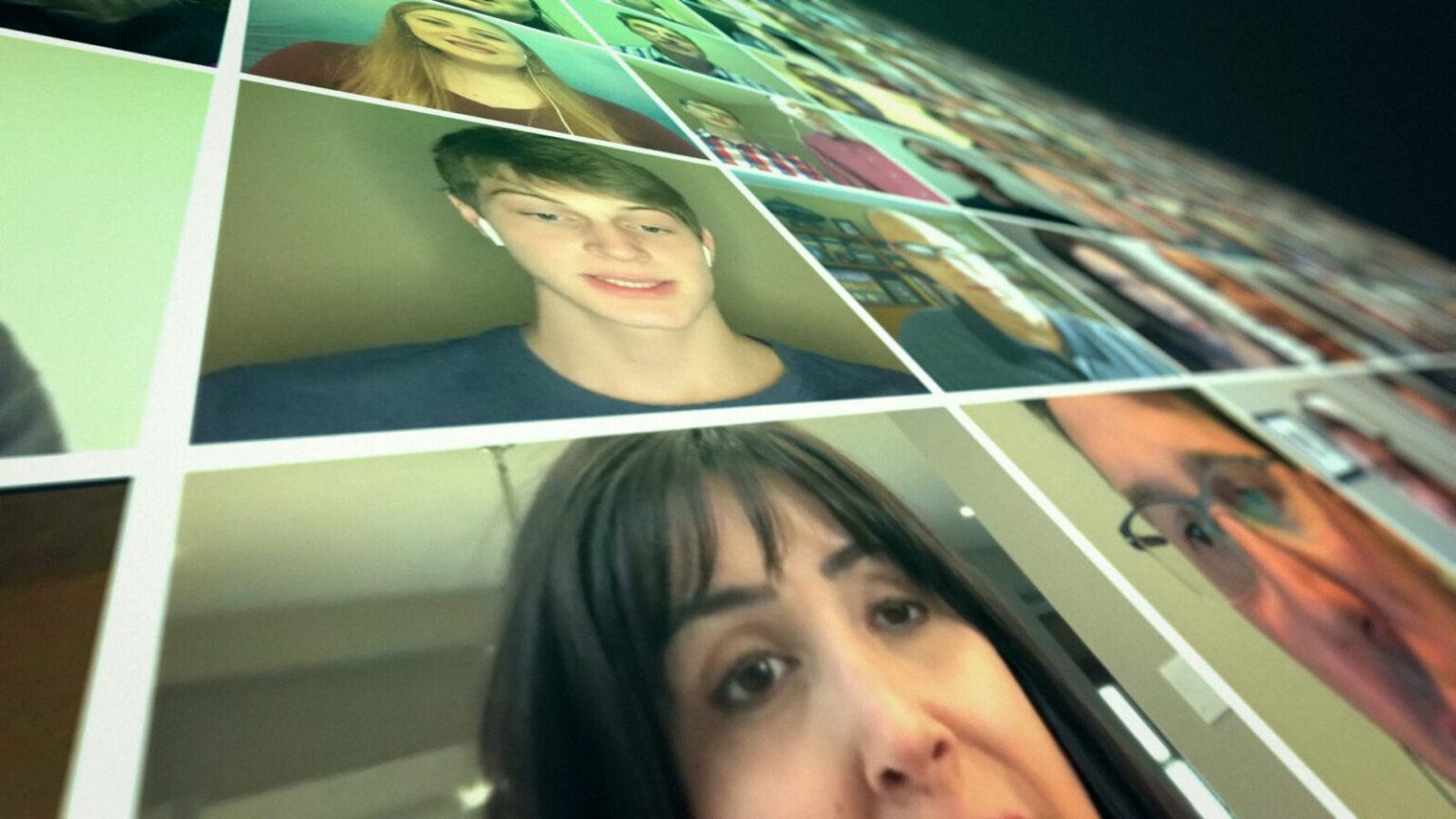

They are back… the pictures of refugees desperately seeking a safe place. We saw similar images already back in 2015. Elena Kloppmann saw them too and could not get the pictures out of her head. That was when she decided that she wanted to help. Today she is helping in the Mediterranean.
It is night, very dark, and stormy. The headlights of the Nadir are trained on a small wooden boat. The 34 people on board haven’t eaten for four days and have started to drink salt water. The crew of the sail-boat work hand in hand to bring the people on board.
In the middle of it all is Elena, who as communications coordinator is taking photos and trying to communicate with the people. All of a sudden someone calls, “Elli, you take the child!” She knelt down on the boat and reached down over the water to grab the child. “It hit me that if I drop this child, it will drown. I have never held a child like I held this child.”
A landlubber goes on board
Elena Kloppmann, 28, is a happy-go-lucky kind of person who grew up in a New Apostolic family. The fact that people fleeing their homeland die on the Mediterranean Sea is something she could not bear and thought that something just had to be done about it. When she heard that a former classmate hired on as a ship’s cook on one of the rescue boats that ply the Mediterranean to rescue refugees, she decided that this was something that was for her and she could do something concrete to help.
“It was the first time that I was ever on a sail-boat,” says Elena. “I spent the first night on deck hanging over the railing.” Not even 24 hours after the Nadir had left port—with Elena and her five colleagues—they came across the small wooden boat adrift in the sea.
“That boat had no business being on the Mediterranean. It was a nutshell,” Elena says, still stunned. The motor had broken down, there were no oars so that the migrant’s boat was disabled. Elena swallowed some tablets to beat the motion sickness, and it worked.
Doing something instead of studying the problems
After her interdisciplinary Bachelor’s degree in Humanities and doing her Master in Intercultural Communication and International Relations in Denmark, Elena did an internship at the United Nations in New York. “The whole time I was dealing with the problems of this world, but I felt like I was living a very privileged life.”
Through her home congregation in the southern Black Forest area in Germany, Elena had already come into contact with refugees. After talking with her host mother in New York, who had experience as a paramedic, it was clear to Elena: “I am heading to the Mediterranean.” She wrote to several independent search and rescue organisations and signed on with one of the groups that responded: Resqship.
Rescuers work hand in hand
With sea rescue operations in the Mediterranean suspended by the governments, NGOs were established, Elena says. The rescuers monitor human rights violations on the Mediterranean—for example, when refugees are not rescued or are forcibly prevented from leaving the coast—and if people are in distress at sea.
They use social media to draw attention to the situation. This was Elena’s job as communications coordinator on the Nadir.
The ships of the NGOs have divided the Mediterranean into several sectors so that each ship has a fixed route, and they communicate with each other constantly. “Say we come across a boat with 200 refugees on board. This is something that we as a crew of six on a 19-metre sail-boat cannot possibly handle. That means we contact either the Italian or Maltese Coast Guard for help or other NGO boats.” Often the boat that is closest takes over the rescue.
Elena also earns her living by helping others. She works in marketing for an international children’s aid organisation. She was interviewed while she was in a refugee camp in Greece. For her, love of neighbour is not an empty word. “This is something I grew up with: that every person, regardless of their origin or background, has to be loved,” she says.
Life-changing experiences
Growing up with a father who was a Priest in the Church, Elena was involved in church activities from early childhood on. Later, in Freiburg, she became a youth leader. On the boat, her faith was a big support, and the songs she knew from the youth choir accompanied her. “My faith gives me the conviction that what I am doing is the right thing.”
On the other hand, Elena experienced things on board that made her ask why. In one of the boats there was a leaking fuel tank, causing some of the people’s skin to burn. “The alternative, going overboard, would have meant certain death. So it was better to stay put and bear it.”
You are not the same after a mission like that, Elena says. “You are confronted with extreme situations, with things that you don’t see on land.” The mission has taught her that you can function under such situations and help others. And then there were encounters that have brought about a fundamental change in her: encounters with rescuers and encounters with refugees. “They are super inspiring people”, she says, “which gives me incredible energy.”
And then there was the invasion of Ukraine last week. Elena cannot stand by and watch. On Friday evening after the war started, she and a friend from the sea rescue operation drove to the Ukrainian border with a delivery of emergency relief supplies. Right now she is helping to organise the private aid corridor from Germany.






